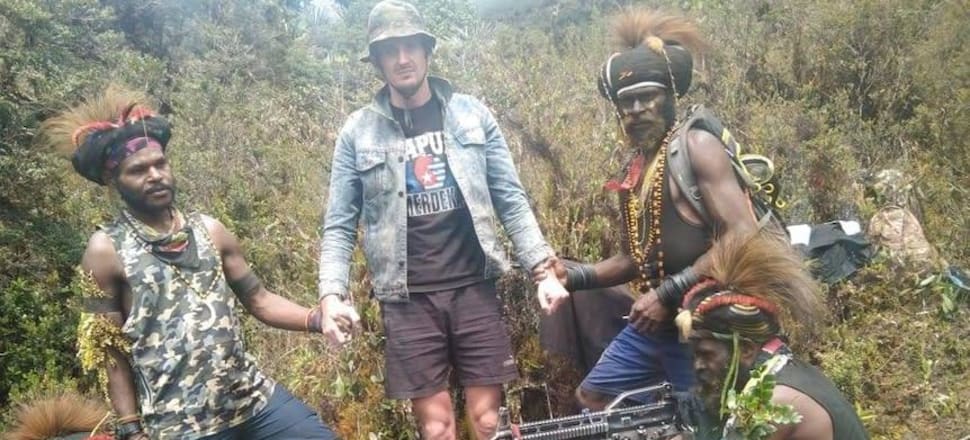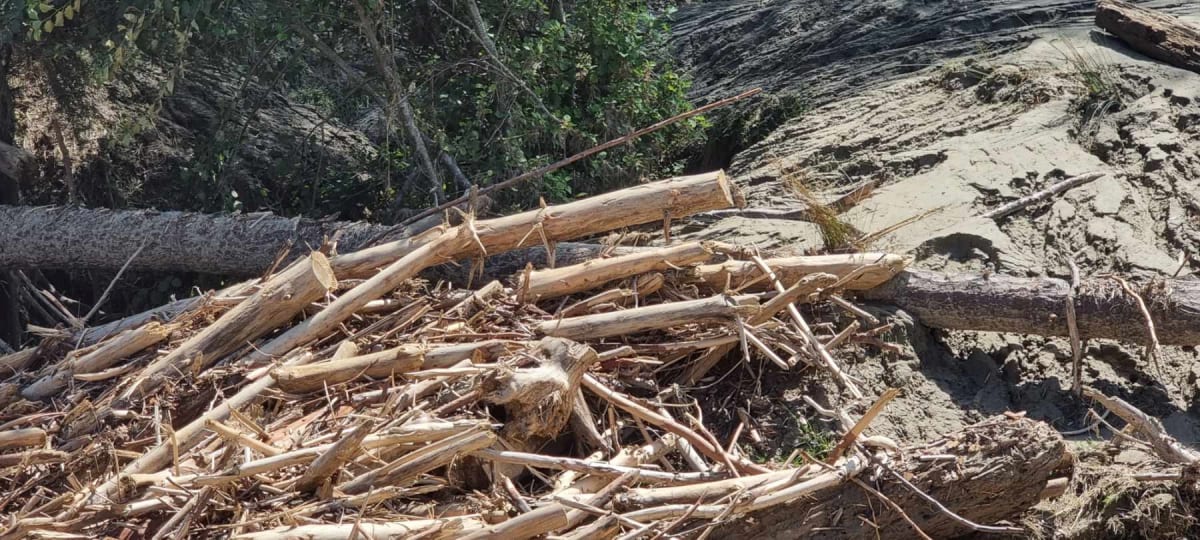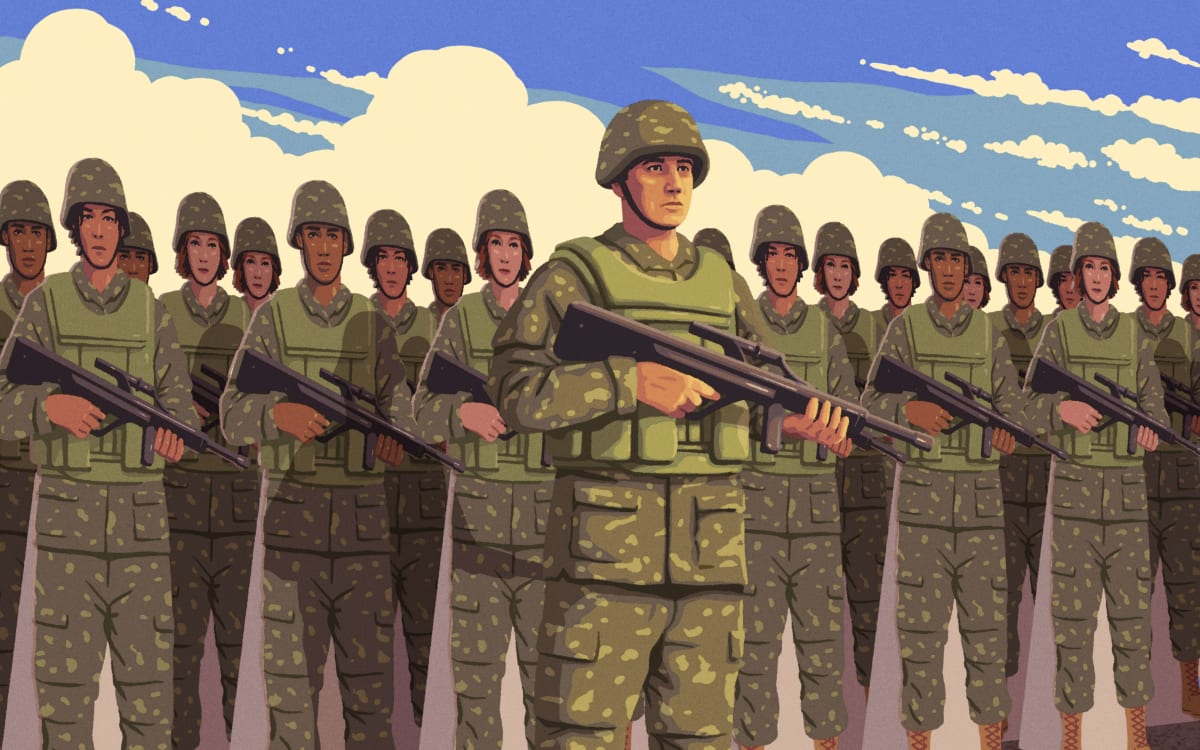
Every weekday, The Detail makes sense of the big news stories.
This week, we looked at the conflict in West Papua where local man Phillip Mehrtens is being held hostage, whether we can curb the devastation caused by forestry slash, why young New Zealanders are switching off from homegrown news and media, the clean up effort on the ground in Hawkes Bay, and the importance of protecting nighttime darkness for our own good and that of te taiao.
Plus, a new edition of our Long Read.
Whakarongo mai to any episodes you might have missed.
The pilot, the rebels and West Papua’s independence struggle
New Zealander Phillip Mehrtens was taken hostage earlier this month by the rebel group the West Papua National Liberation Army.
How did a Christchurch pilot end up a pawn in the decades-long struggle for West Papua's independence?
Dr Cammi Webb-Gannon from Australia's University of Wollongong, an expert on decolonisation in the Pacific, calls Phillip Merhtens "incredibly unlucky" - a man in the wrong place at the wrong time.
Tom Kitchin talks to Webb-Gannon as well as RNZ's Johnny Blades about the complex geopolitics Mehrtens has been caught up in.
Forestry's uncertain future on the East Coast
January's flooding and Cyclone Gabrielle sent debris from forestry land frothing into the ocean, crowding major highways, and through people's homes.

It's a deadly problem, but who's going to clean it up?
Sharon Brettkelly talks to veteran forestry journalist Mike Smith, South Island forestry consultant and manager Allan Laurie, and Scion principal scientist Dr Tim Payn about the wicked problem of slash.
Younger audiences slip away from local media
The days of sitting down in front of the TV with your parents to watch the 6'oclock news are long gone, and the migration of younger Kiwis to the digital giants is accelerating.

That's one of the stark findings of NZ On Air's youth audiences research, which surveyed 15-to-24-year-olds about their media consumption habits.
The most popular local media platform? TVNZ came in at a quite distant eighth, behind YouTube, Facebook, Instagram, Spotify, Netflix, TikTok and Snapchat.
The Spinoff founder and senior writer Duncan Greive says those big technology platforms "own the attention of young New Zealanders".
Sarah Robson talks to Greive and the co-founder and editor of local Gen-Z-led media platform Shit You Should Care About, Lucy Blakiston.
Cyclone Gabrielle: On the ground in Hawkes Bay
Wasted crops, marooned vehicles, mud-crusted buildings. In and amongst it all, armed with gloves and masks to dig through the toxic silt, the people of Hawkes Bay are starting to rebuild.

Tom Kitchin heads to the area to see the carnage caused by Cyclone Gabrielle and meet the people whose lives have been changed.
"Well I know all of these landowners and farmers here personally and this is just soul destroying, seeing the way their farms and farm infrastructure has been wrecked," says Kev Mitchell from the Rural Support Trust.
"It's pretty emotional stuff, there's often one or two lifetimes of work gone into getting these farms up to the standard they were in and in one 12-hour period they've been severely wrecked."
Protecting the night sky
There's growing awareness of the night sky in Aotearoa, with events like Matariki and the recent launch of two new dark sky reserves in Wairarapa. But at the same time, there's increasing alarm over the spread of wasted bright light and the damage it's doing to human health and the environment, prompting calls for laws to control it.

Annette Lees, the author of After Dark: Walking into the Nights of Aotearoa, takes Sharon Brettkelly on a night walk around her property near the Waitākere Ranges, to show the abundance of wildlife that needs darkness to thrive.
The Detail's Long Read: In Our Defence
This is The Detail's Long Read - one in-depth story read by us every weekend.

This week, it's In Our Defence written by Pete McKenzie and published in North & South's March 2023 issue.
You can find the entire article on the North & South website.
Joining our army, navy or air force was once an assured way to build a career, gain marketable qualifications and save for a mortgage while living in subsidised housing. But with unfit houses and poor pay, the ranks are thinning dangerously — to the point where the most basic operations of a modern defence force are at risk.
You can find out how to listen to and follow The Detail here.
You can also stay up-to-date by liking us on Facebook or following us on Twitter.








